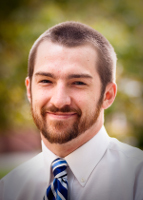Jon Taylor
Dissertation (Proposed): Describing the Spirit in East and West: Trinitarian Grammar and Maximus the Confessor

In the spring of 2009 I began an academic year of discernment as I looked for a graduate school or seminary to continue my education. I had a passion to study and practice theology, to be in dialogue with the broadest range of Christianity possible, and to do so in a community of confessed Christians after a B.A. from a state school. That same year, Wheaton established the Center for Early Christian Studies. I listened to the inaugural lecture online and visited Wheaton during the Center’s first conference. This brief exposure made my decision much easier; I saw a place where I could study theology in an academically rigorous manner, be open to engaging a broad Christian tradition, and yet openly hold my faith commitments and commitments to Christian service. I came to Wheaton in 2010, earned my M.A. in Historical Theology in 2012, and am currently in my third year of Ph.D. research in association with the Center. My research is in pneumatology and Trinitarian thought in the early middle ages, particularly in the person of Maximus the Confessor. Regardless to what teaching role God sends me, my time associated with Wheaton and the Center has enabled me to articulate my faith confidently not only using biblical and philosophical tools, but to articulate (and deepen) my faith based on the history of God’s action in and through his church. I was given the space and tools to listen to the history and voices of brothers and sisters who I otherwise would have likely missed completely or been unable to understand and appreciate.
